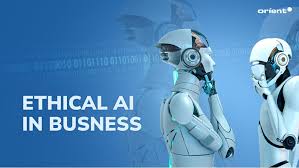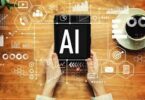The Ethics of Artificial Intelligence: What You Need to Know
As artificial intelligence (AI) becomes more integrated into everyday life, its ethical implications have sparked important discussions about how AI should be developed, deployed, and regulated. While AI has the potential to revolutionize industries and improve quality of life, it also raises significant concerns regarding privacy, fairness, accountability, and its potential to perpetuate harm. Here’s an overview of the key ethical issues surrounding AI and the frameworks being developed to address them.
1. Bias and Fairness
AI systems are only as unbiased as the data they are trained on. If data sets used to train AI contain biases (whether societal, historical, or cultural), the AI models can inherit and amplify these biases. This is particularly concerning in areas such as hiring, criminal justice, healthcare, and finance, where biased algorithms could reinforce existing inequalities.
Key Questions:
- How can we ensure AI systems are fair and unbiased?
- How do we identify and address bias in data and algorithms?
- What steps should be taken to ensure equal treatment for all individuals, regardless of race, gender, or socioeconomic background?
Example: In 2018, a study showed that an AI used in criminal justice risk assessments was more likely to incorrectly predict higher recidivism rates for Black defendants compared to White defendants, leading to concerns about racial bias in the system.
2. Privacy and Surveillance
AI-driven technologies, such as facial recognition and data mining, have raised concerns about privacy and surveillance. These technologies allow for the collection of massive amounts of personal data, which can be used for everything from targeted advertising to surveillance by governments and corporations.
Key Questions:
- How can we protect individual privacy while using AI?
- What are the risks of surveillance and invasion of privacy in a world where AI is ubiquitous?
- How do we balance the benefits of AI with the potential for misuse of personal data?
Example: In China, widespread use of facial recognition technology by the government has raised concerns about the erosion of privacy and the potential for state surveillance, with critics arguing that it could be used to monitor and control populations.
3. Accountability and Responsibility
As AI systems become more autonomous, it becomes increasingly difficult to assign responsibility when things go wrong. Who is to blame if an AI system makes a harmful decision or causes an accident? The creators, the users, or the AI itself?
Key Questions:
- Who is legally and ethically responsible when AI systems cause harm?
- How can accountability be ensured if an AI system makes an error, particularly in high-stakes scenarios like healthcare, autonomous driving, or military operations?
- How do we design AI systems that are transparent and explainable, so that decisions made by AI can be traced and understood?
Example: In 2018, an autonomous Uber vehicle struck and killed a pedestrian in Arizona. While Uber was investigated, questions arose about whether the vehicle’s AI system or its human operator was primarily responsible for the accident.
4. Job Displacement and Economic Impact
AI and automation are increasingly capable of performing tasks traditionally done by humans, leading to concerns about job displacement. While AI could drive economic growth, it also has the potential to disrupt industries and lead to widespread unemployment, especially in fields like manufacturing, customer service, and transportation.
Key Questions:
- How can society mitigate the negative economic impacts of AI-driven job displacement?
- What measures should be taken to retrain workers and help them transition into new roles?
- How can we ensure that the economic benefits of AI are distributed fairly?
Example: The rise of autonomous vehicles threatens jobs in the trucking industry, while AI-driven chatbots could replace customer service agents. Governments and businesses will need to address these changes and create policies to protect workers.
5. AI in Warfare and Autonomous Weapons
AI is being increasingly integrated into military technologies, including autonomous weapons systems (drones, robots, etc.). These systems could be programmed to make life-and-death decisions without human intervention, raising concerns about the potential for misuse, lack of accountability, and escalation in conflicts.
Key Questions:
- Should AI be allowed to make autonomous decisions in warfare?
- What safeguards should be in place to prevent misuse or unintended consequences of AI in military settings?
- How do we ensure that AI-driven weapons adhere to international laws, such as the Geneva Conventions?
Example: The development of lethal autonomous weapons has sparked debates about whether AI should be entrusted with life-and-death decisions. Some experts argue that human oversight is crucial to ensure compliance with ethical and legal standards.
6. The Future of Human-AI Relationships
As AI becomes more integrated into daily life, it raises philosophical and ethical questions about the role of machines in society. How should AI be designed to interact with humans? What happens when AI systems surpass human intelligence (referred to as Artificial General Intelligence or AGI)?
Key Questions:
- How can we ensure that AI systems respect human dignity and values?
- What ethical frameworks should guide the development of highly intelligent or sentient AI?
- How do we prevent the potential misuse of AI for manipulation, exploitation, or harm?
Example: The idea of “AI companions” or digital assistants that engage in meaningful conversations and offer emotional support raises questions about the impact on human relationships and mental health.
7. Global Regulation and Governance
Given the global nature of AI development, ethical issues surrounding AI need international cooperation. Different countries have different regulations, which can lead to uneven standards and a lack of accountability, especially when AI technology crosses borders.
Key Questions:
- What international frameworks should be established to regulate AI development and deployment?
- How can countries balance innovation with responsible AI use?
- What role should governments, private companies, and civil society play in setting AI standards?
Example: The European Union has taken steps toward regulating AI, with the proposed Artificial Intelligence Act aiming to establish clear guidelines for the use of AI in high-risk sectors like healthcare and transportation.
8. Transparency and Explainability
As AI systems become more complex, understanding how they make decisions becomes more difficult. Transparency is critical to ensure that users and stakeholders can trust AI systems, especially when they are used in critical areas such as healthcare, law enforcement, and finance.
Key Questions:
- How can we design AI systems that are explainable to non-experts?
- What measures should be taken to ensure that AI decisions are transparent and understandable?
- How do we make complex AI models more interpretable to ensure fairness and accountability?
Example: AI used in healthcare for diagnosing diseases or recommending treatments should be explainable, so that doctors and patients can understand how decisions are made and ensure they align with medical ethics.
Conclusion
The ethics of artificial intelligence is a rapidly evolving field that requires collaboration between technologists, policymakers, and society as a whole. To fully realize the potential of AI while minimizing harm, we must address issues such as bias, accountability, privacy, job displacement, and transparency. Establishing ethical guidelines, developing robust regulatory frameworks, and fostering public dialogue will be crucial to ensure that AI serves humanity in a responsible and beneficial way.
Would you like to dive deeper into any specific ethical challenge of AI?










Leave a Comment